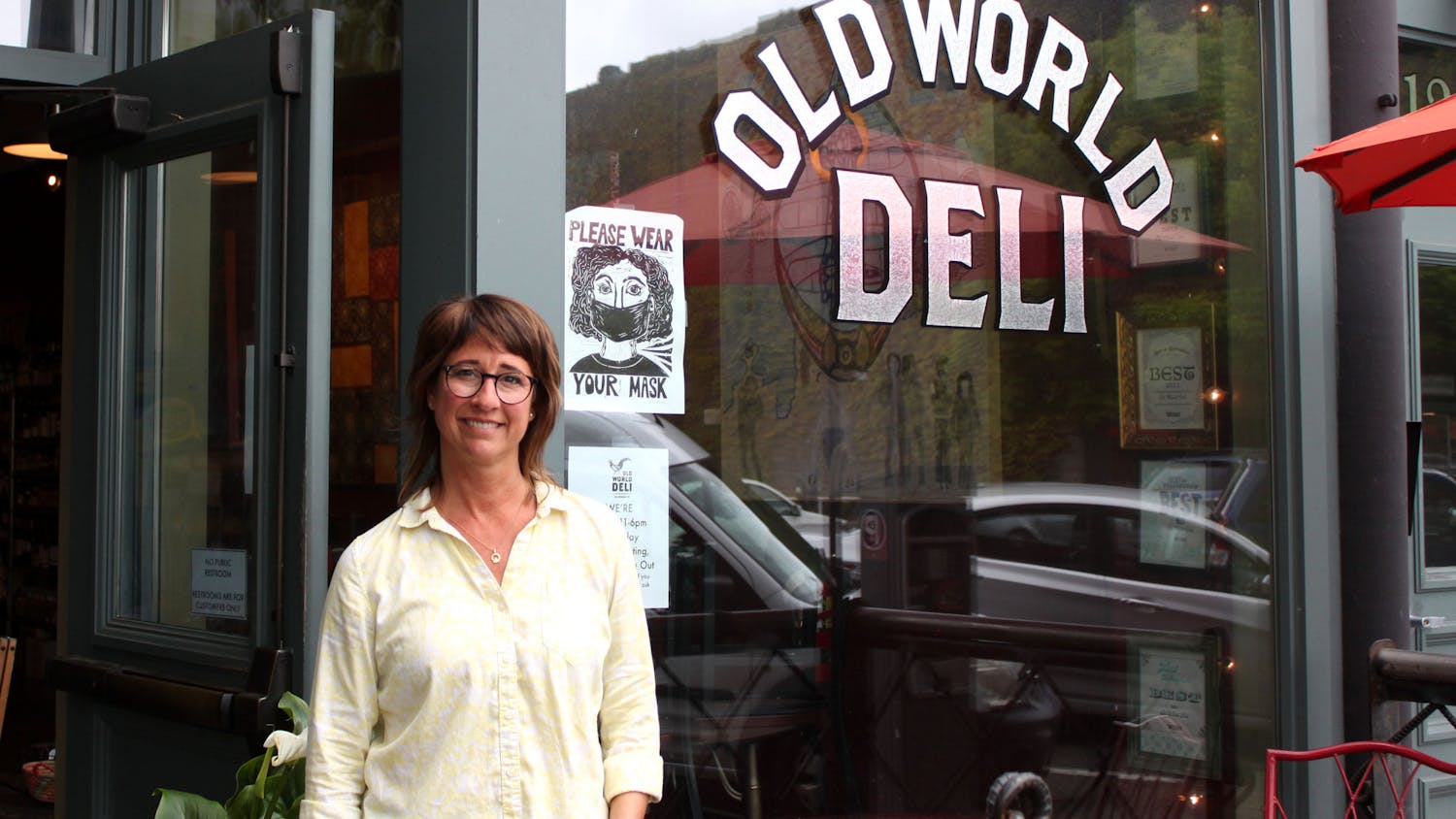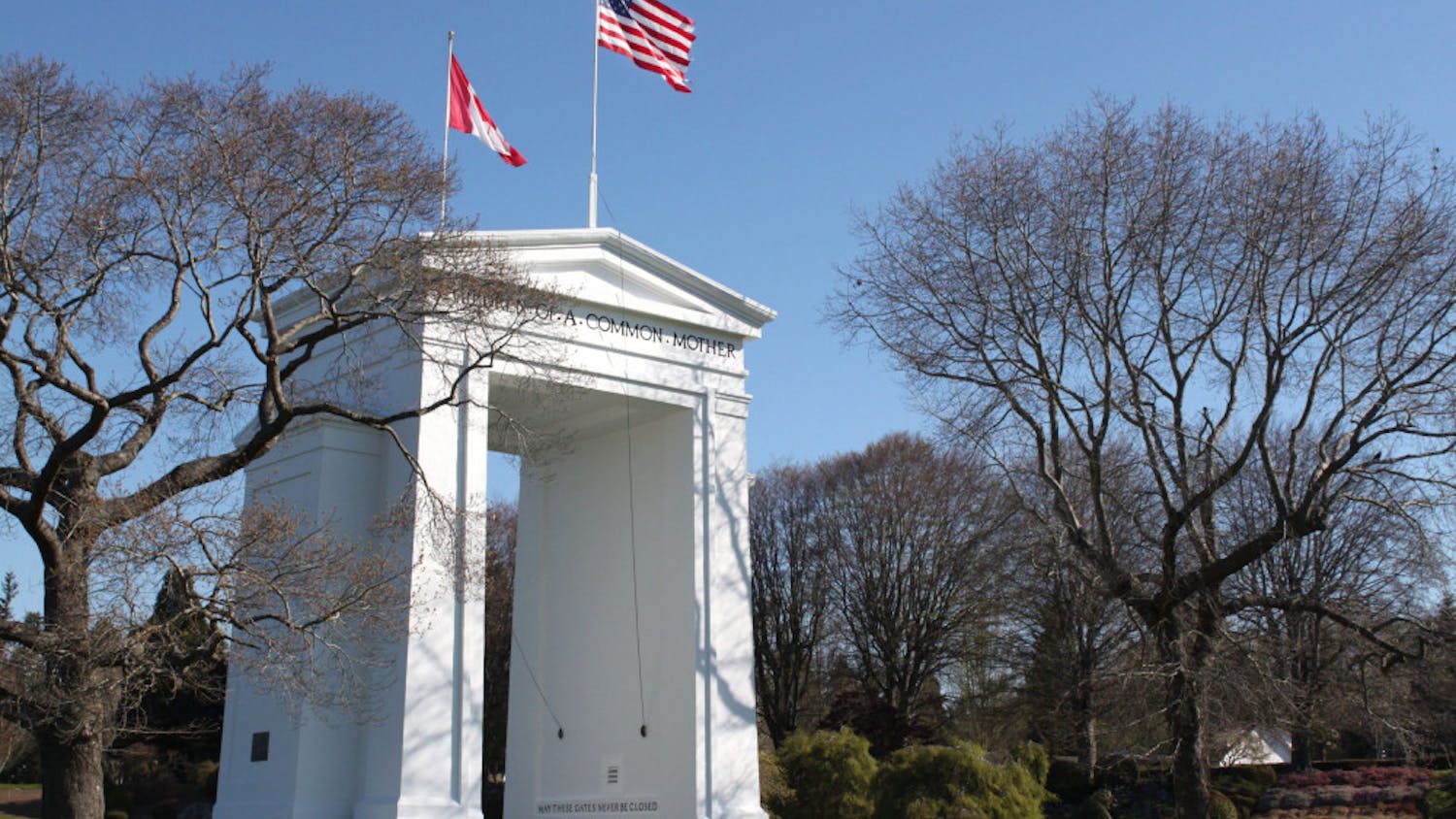Imagine getting the news that a family member is passing and the only way to be with them while they take their last breath is over FaceTime.
These experiences are what David Poon, the director and founder of Faces of Advocacy, saw families encounter after the Canada-U.S. border closed in March 2020. Nearly 16 months later, the border’s anticipated July 21 reopening leaves some hopeful and others skeptical.
On March 21, 2020, the Canada-U.S. land border closure was put in place to prevent and limit the spread of COVID-19. During this time, former President Donald Trump and Canadian Prime Minister Justin Trudeau agreed on limitations restricting nonessential travel, including family vacations and recreation, while still maintaining trade between the two nations.
"Our governments recognize that it is critical we preserve supply chains between both countries," Trudeau said on March 18, 2020, in a news conference regarding the border restrictions.
Faces of Advocacy is a campaign that works closely with families separated by COVID-19 restrictions on U.S.-Canada border crossing. When the border closed in March 2020, Poon and his partner, Alexandria Aquino, faced frustrations as she tried to enter Canada. After getting appropriate documentation from both the Canadian Embassy and Immigration, Refugees and Citizenship Canada to prove Poon’s partner had reason to be in Canada, Aquino was turned away and sent back to Europe, Poon said.
"My partner being turned away, in itself, can be acceptable, but certainly not the way she was treated as if she was a liar," Poon said. "I hated that, and that anger is what I think sparked this whole campaign."
Situations like these inspired Faces of Advocacy to pass an extended family and compassion exemption on Oct. 2, 2020, allowing travel for family or other specified reasons to be deemed essential, Poon said. These exemptions, however, required extensive COVID-19 testing for travelers and a minimum 15-day quarantine at a hotel, he added.

Participants during Faces of Advocacy’s virtual rally on September 26, 2020. Faces of Advocacy hosted the virtual rally a week before they won their exemptions on October 2, 2020, which received large support from the public. // Courtesy of Kat Eksrtom
These regulations may loosen as Canada prepares for new border exemptions starting July 5. Fully vaccinated individuals eligible to cross into Canada will be able to do so without hotel stays, quarantining and the day-8 testing requirement, according to the Government of Canada's official website.
While the new exemptions offer good news, Poon said they still pose challenges for families with children. These new exemptions will not apply to unvaccinated children, meaning parents with young children will still have to follow previous traveling measures until further notice. The potential reopening of the border for foreigners — including Americans — on July 21 is also still up in the air.
Since the initial closure of the border last spring, both the United States and Canada have extended the closure month by month. Last month, the border was supposed to reopen on June 22, but the date was pushed to July 21 for United States citizens wanting to travel for nonessential purposes.
Laurie Trautman, the Border Policy Research Institute director at Western Washington University, said she believed that at the beginning of the pandemic, the land border closure was justified but that things these days need to change.
"In terms of the actual border restrictions, I think they were very important and necessary in the beginning because everybody was caught off guard by this new virus," Trautman said. "But, that was 15 months ago."
Trautman stated she is frustrated, as she believes solutions have been brought to the United States and Canadian government's attention, but neither governments have an interest or the capacity to develop innovative ways to allow safe border travel.
Though she has mixed feelings on the subject, Trautman said there are some positives stemming from the situation.
"We're still moving forward bilaterally, which, whether or not you think the border restrictions are good or bad, there's still value to that," Trautman said. "[The two governments] are still somewhat collaborating."
The Canada Border Services Agency declined to be interviewed about the reopening of the Canada-U.S. land border.

The Border Patrol Station in Blaine, Wash., on Sunday, June 25, 2021. Blaine is often described as a "border town" as the Canada-United States border resides right next to the town, many of those who live in Port Roberts use this land border to cross back into the U.S. // Photo by Aria Nguyen
Other individuals do not share the same positivity as Trautman, expressing disappointment with the continual extensions of the border closure, while putting pressure on President Joe Biden and Trudeau to lift border restrictions for Americans.
One of those individuals is business owner Ali Hayton. Hayton owns Point Roberts Marketplace, and said she is frustrated with the way the land border closure and travel restrictions have been handled. Hayton added that 75% of her customers are Canadian, and with business down 70%, running the market in Point Roberts will no longer be sustainable if she continues to do so alone.
"When they extended the border closure one more month, I reached out to all the legislators I had in my address book and just said, 'I can probably keep this going for another couple weeks, but I need you guys to either put some pressure on the U.S. to open our border or to at least give us an exception that the other exclaves have gotten or help me financially,'" Hayton said.
Hayton also expressed her concerns and sympathy to the families and community members who rely heavily on her market to stay open.
"I try to picture a young mom with a kid waking up in the morning with a fever and needing to run to the store for Tylenol, and if I'm not there, that is not an option because there is no other place to buy those things," Hayton said.
Brian Calder, president of the Point Roberts Chamber of Commerce, said he is skeptical of whether the border will reopen.
"They've held the carrot in front of us donkeys for 16 months," Calder said. "I don't trust them or anything they say. I only trust what I see them do."
Calder said he has seen multiple people and families suffer from the "lockdown" Point Roberts has been experiencing during the border extension's continual pushbacks. His wife has been unable to provide extensive care to her 94-year-old mother in North Vancouver due to the quarantine restrictions.
"I would say that there are roughly 150 people who have been in the same boat," Calder said, referring to community members in Point Roberts. "There was a local fellow with a mother on her deathbed; he went to the border with a note printed from the doctor to authenticate his mother was dying but was denied entry."
Calder said that he and other community members have been speaking to the media to see if they would get a direct response from either the Canadian or United States government. Most recently, he sent a letter to Biden and Trudeau requesting immediate action for the sake of Point Roberts.
"We've been speaking to the media every week," Calder said. "No one listens."
Looking into the future, Hayton said that Point Roberts needs answers.
"Right now, we need the right words to get in the right hands so the people who can do the right things can do something for us," Hayton said.
Aria Nguyen is a third-year student majoring in news and editorial journalism with a minor in sociology. Her reporting is typically centered on stakeholder and community needs. Outside of the newsroom, she likes to practice martial arts and play the sims while listening to Harry Styles.
You can reach her at arianguyen.thefront@gmail.com
You can also find her on Instagram @_arianguyen_






